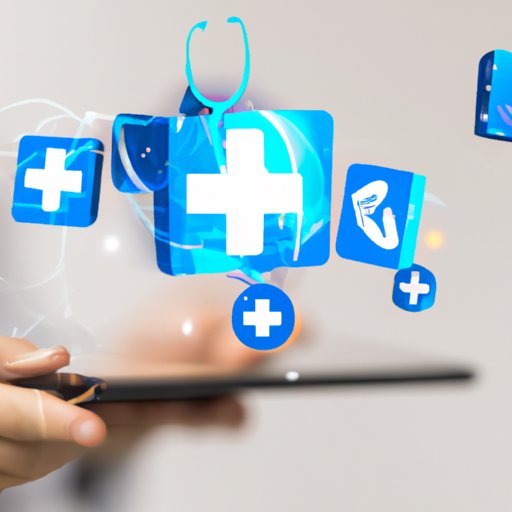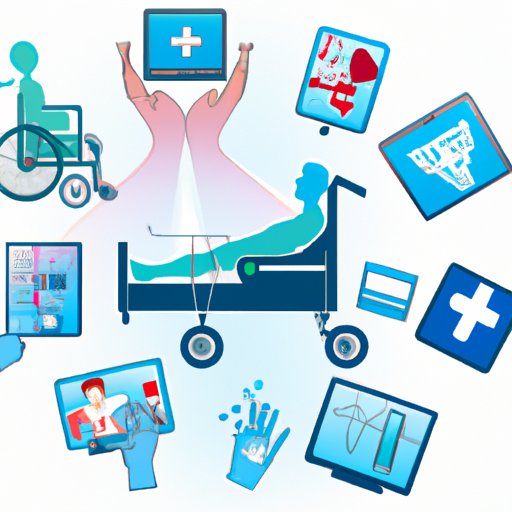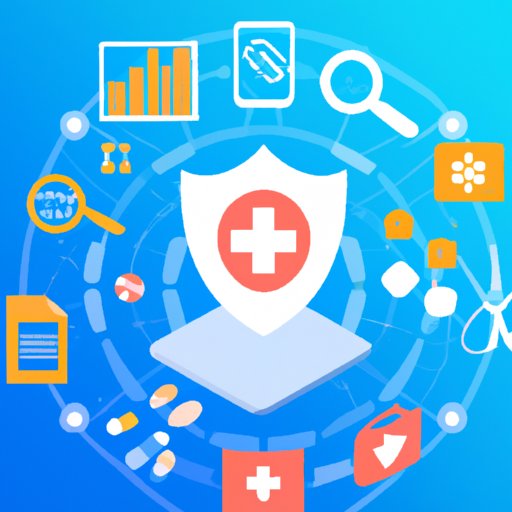Introduction
Health technology is a broad term that refers to the application of technology in healthcare. It encompasses a wide range of technologies and solutions, such as electronic medical records, telemedicine, robotics, artificial intelligence, wearable devices, and more. Health tech has the potential to revolutionize the healthcare industry by improving patient outcomes, increasing access to healthcare, and reducing costs.
The introduction of health technology into the healthcare system presents both benefits and challenges. On one hand, it can improve efficiency, accuracy, and accessibility of healthcare services. On the other hand, it can also bring about security and privacy risks, as well as cost implications.

Impact of Health Tech on Healthcare Delivery
Before the introduction of health technology, healthcare delivery was largely manual, time-consuming and inefficient. With the emergence of health tech, healthcare delivery has become more efficient, with processes being automated and streamlined.
One of the key benefits of health tech in healthcare delivery is improved accuracy. For instance, Electronic Medical Records (EMR) allow healthcare professionals to store and access patient data quickly and accurately. This not only improves the accuracy of diagnosis and treatment, but also reduces the risk of errors due to manual data entry.
Health tech also increases access to healthcare services. Telemedicine, for example, enables patients to access healthcare services from remote locations via video conferencing or phone calls. This is especially beneficial for rural and underserved communities who have limited access to healthcare services.
However, there are also some challenges presented by health tech in healthcare delivery. The introduction of health tech can be costly and time-consuming. In addition, the implementation of health tech requires extensive training for healthcare professionals, which can also be a challenge.

Use of Health Technology for Disease Diagnosis and Treatment
Prior to the introduction of health technology, disease diagnosis and treatment were largely manual processes which relied heavily on the experience and intuition of healthcare professionals. With the emergence of health tech, disease diagnosis and treatment have become more accurate and efficient.
For example, Artificial Intelligence (AI) is being used to identify patterns in patient data that may indicate the presence of certain diseases. This can help healthcare professionals diagnose diseases earlier and more accurately. AI is also being used to develop personalized treatments for patients, which can improve outcomes.
In addition, health tech has enabled the development of new treatments, such as gene therapy and robotic surgery. These treatments are less invasive and have fewer side effects than traditional treatments.
However, there are also challenges associated with health tech in disease diagnosis and treatment. For example, AI systems require a large amount of data to be accurate, and this data must be collected in an ethical manner. Additionally, the use of health tech in disease diagnosis and treatment can be costly, and it can be difficult to keep up with the rapidly changing technology.

Role of Health Technology in Patient Care
Before the introduction of health technology, patient care was largely dependent on the experience and intuition of healthcare professionals. With the advent of health tech, patient care has become more efficient and effective.
For instance, health tech can be used to monitor the health of patients remotely. Wearable devices, such as fitness trackers, can be used to track a patient’s activity levels and vital signs. This data can then be used to identify any potential health issues and provide timely interventions.
In addition, health tech can be used to provide personalized care to patients. For example, AI can be used to analyze patient data and create tailored treatment plans. This can help ensure that patients receive the most appropriate care for their individual needs.
However, there are also challenges presented by health tech in patient care. For example, the use of health tech can be costly, and it can be difficult to keep up with the rapidly changing technology. Additionally, there are security and privacy risks associated with health tech, as personal data is often stored online.
Cost-Effectiveness of Health Tech Solutions
The introduction of health technology into the healthcare system has had an impact on the cost-effectiveness of healthcare services. On one hand, health tech can reduce costs by streamlining processes and eliminating the need for manual labor. On the other hand, health tech can also be costly to implement and maintain.
One of the key benefits of health tech in terms of cost-effectiveness is the reduction of administrative costs. For instance, Electronic Medical Records (EMR) eliminate the need for manual data entry, which can save time and money. Additionally, health tech can enable the automation of processes, such as billing and appointment scheduling, which can further reduce costs.
However, there are also challenges associated with the cost-effectiveness of health tech solutions. For example, health tech can be expensive to implement and maintain. Additionally, the cost of health tech can vary depending on the type of technology and the size of the organization.
Security and Privacy Risks of Health Technology
The introduction of health technology into the healthcare system has raised concerns about security and privacy. As health tech stores and transmits sensitive patient information, it is important to ensure that this data is secure and protected from unauthorized access.
One of the key benefits of health tech in terms of security and privacy is the ability to track and monitor access to data. For instance, access logs can be used to track who has accessed a patient’s data and when, allowing organizations to detect and respond to any suspicious activity.
Additionally, health tech can be used to encrypt data, making it more difficult for unauthorized users to access it. However, there are still challenges associated with security and privacy, such as the need for regular updates and training for healthcare professionals.
Conclusion
Health technology has the potential to revolutionize the healthcare industry by improving patient outcomes, increasing access to healthcare, and reducing costs. It has a significant impact on healthcare delivery, disease diagnosis and treatment, patient care, cost-effectiveness and security. While health tech offers many benefits, it also presents some challenges, such as security and privacy risks, cost implications, and the need for extensive training.
It is important to explore the impact of health technology in order to ensure that its benefits can be maximized while minimizing its risks. Further research is needed to understand the full implications of health technology and to develop strategies to ensure its safe and effective use.
(Note: Is this article not meeting your expectations? Do you have knowledge or insights to share? Unlock new opportunities and expand your reach by joining our authors team. Click Registration to join us and share your expertise with our readers.)
